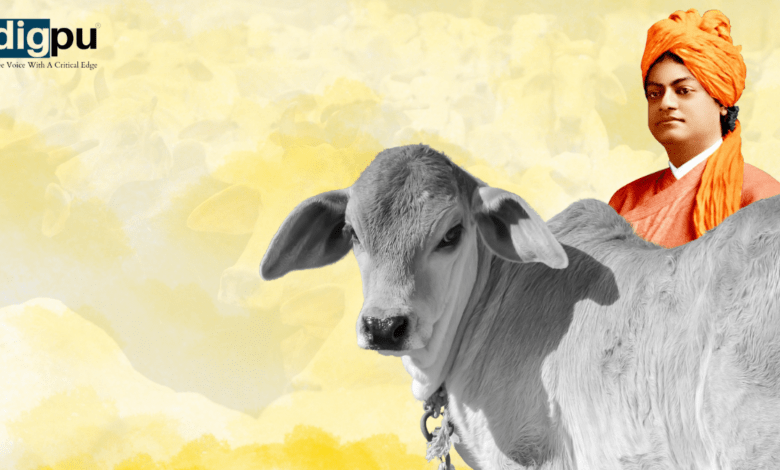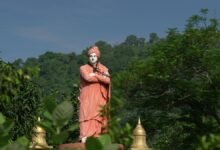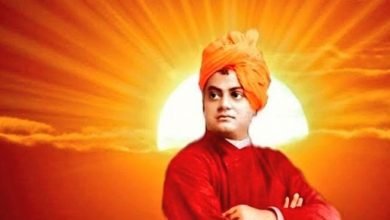Swami Vivekananda’s view on ‘Gau Raksha’ might unsettle a lot of religious fanatics in modern India.
Which is costlier, the life of a human or that of an animal?

According to a report published by Reuters in 2017, the cases of violence under the placard of ‘Gau Raksha‘ (Cow Vigilantism) have skyrocketed since 2015. From 2010 to 2017, 28 Indians (24 Muslims) were killed and 124 injured due to cow-related violence.
The rate of murders under Cow Vigilantism and Mob-lynchings has increased alarmingly since the BJP rose to power in 2014. With many eminent local politicians of the ‘Hindu-nationalistic’ party endorsing such violence and their high command’s perceivable indifference against such atrocities has made the ‘Holy cow’ holier-than-thou!
The proprietors of such theocratic ideology later go on before the internet and preach lessons of ‘intolerance’ and hatred that result in the instigation of young minds and the manifestation of communalism. Despite a verdict from the Supreme Court that criminalised Cow Vigilantism in 2017, Gaurakshaks continue to be glorified in some parts of our country.
Through this article, I would like to uphold the parallel views of a person who was a greater Hindu than most of the flag bearers of Hindutva. The following anecdote from the life of the eminent monk Swami Vivekananda might pinch them to introspect and decide: which is costlier, the life of a human or that of an animal?
When Swami Vivekananda met a Gau Rakshak:
A Gaurakshak representing a “cow-protecting society” visited Swami Vivekananda while a terrible famine had been plaguing Calcutta. He was presumably on a mission to collect funds for protecting cows. The conversation between the two went something like this:
Swami Ji: What is the objective of your society?
Gau Rakshak: We protect the Gau Maatas of our country from butchers. We have also founded Cow-infirmaries where diseased cows or those bought from the butchers get looked after.
Swami Ji: That is admirable indeed. What is the source of your income?
Gau Rakshak: We get financed through the gifts given to us by virtuous men like you.
Swami Ji: How much money have you collected thus far?
Gau Rakshak: The Marwari traders’ community have been the chief sponsors of this work. They have donated a lump sum for this cause.
Swami Ji: As we speak, a terrible famine plagues Central India. The (British) Government has published a death roll of nine lakh people who starved to death. Has your society done any work to lessen such distress?
Gau Rakshak: Providing help during famine or other distress is not the work of our society. This society was established with the sole purpose of protecting Gau Maatas.
Swami Ji: During such a catastrophic famine when lakhs of people, your own brothers and sisters, fell into the jaws of death, you did not consider once feeding hungry human beings despite having sufficient means!
Gau Rakshak: No. This famine is the result of men’s Karma and their sins. They deserved this.
Swami Ji: I do not have any sympathy for an association that does not give a handful of rice to their own brothers dying from starvation but gives away piles of food to save beasts. If you endorse that men die solely due to their Karma, then trying to struggle for anything in this world will be meaningless. Hence, trying to protect animals is no exception. It can be said—Gau Maata, through her own Karma, falls into the hands of the butchers and dies, and we need not do anything in this matter.
Swami Ji (concluded): I am a Sannyasi, a fakeer. Where can I find money to help you? But if ever I get some wealth, I shall first spend it in the service of man. Man must get saved first and given food, education, and spirituality. If any money gets left with me after all these, only then shall I contribute to your society.
This anecdote should compel such brain-washed and uncritical people to discard dogmatism and evolve into compassionate beings. Swami Ji’s golden words can transcend the barrier of time and age.
The story stays relevant today because despite our beautiful nation winning laurels across the globe owing to our scientific temper, a fringe section of our society remains trapped in medieval bigotry, and it keeps consuming malicious propaganda adhering to a political cause. ‘Traditions’ and ‘beliefs’ must be respected and rationally pursued with the progress of time but should never be allowed to transcend basic morality. Hence, the value of human life is undoubtedly more than the life of a beast.
This anecdote has been taken from Govind Krishnan V's book, "Vivekananda: The Philosopher of Freedom."

